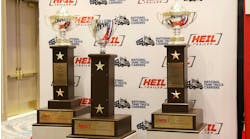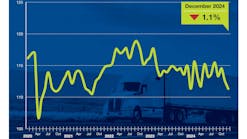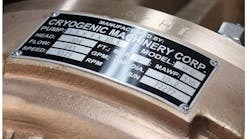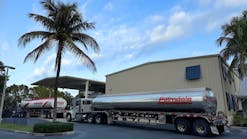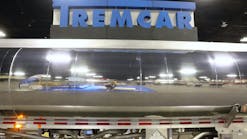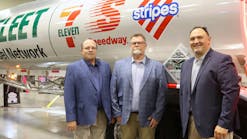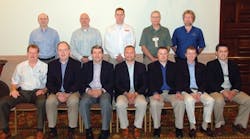DURING the TTMA convention, the TTMA Tank Conference worked on a response to proposals by the Pipeline and Hazardous Materials Safety Administration (PHMSA) that TTMA believes will create hardship for the tank truck industry.
PHMSA recently released a notice of proposed rulemaking regarding external product piping on cargo tank motor vehicles. According to TTMA, the proposal essentially is unchanged from an earlier NPRM that was withdrawn in 2006.
Based in part on input provided during the meeting, TTMA president Jeff Sims sent a letter asking PHMSA to withdraw the proposal (HM-213D) from the docket “due to faulty assumptions in its economic analysis, risks that were not addressed, and the historical precedent set by the withdrawal of essentially the same NPRM five years ago.”
TTMA requests that DOT 407's and MC 307's be excluded from this rulemaking because:
- No evidence
TTMA says there is a lack of history of catastrophic fires involving MC 307 and DOT 407 cargo tanks and a release of product from piping.
- Limited risk
A typical MC 307 or DOT 407 cargo tank contains less than eight liters of product in its outlet piping at any given time. By contrast, a typical MC 306 or DOT 406 typically contains up to 180 liters of product.
- Cleaning issues
Most MC 307's and DOT 407's are in general chemical service and are cleaned out several times a week. The presence of a purging system would make this process substantially more difficult and costly — approximately $40 million per year based on an estimated one million washes per year.
- Contamination issues
TTMA is convinced that even with additional cleaning, cross-contaminated loads are a virtual certainty. Some perils of cross-contamination are:
- Rejected loads
TTMA believes that the prospect of cross-contaminated loads will cause more loads to be rejected — resulting in millions of dollars in waste each year.
- Corrosion in the purging system
Incomplete cleaning of the purging system could lead to mixing of reactive materials in the purging system and render the device inoperable.
- Other reactions
Incomplete cleaning of the purging system could also lead to exothermic or explosive events.
- Rejected loads
- Air-sensitive products
The manual and automatic purging systems currently available require the introduction of air into the external piping. Many products hauled in MC 307 and DOT 407 cannot come into contact with air, due to product purity or safety considerations.
- Food contamination
Many MC 307 and DOT 407 cargo tanks haul flammable, food-grade additives for cosmetics, pharmaceuticals, and other forms of human consumption. TTMA is concerned that the difficulty in cleaning purging systems would lead to food contamination issues.
- Crude oil transportation
Crude oil is hauled in single-compartment MC 307 and DOT 407 cargo tanks with exposed piping. The particulate matter (sand, dirt and other earthen materials) found in harvested crude oil will render the purging system inoperable.
TTMA concluded the letter by pointing out that the association is not aware of any wetlines incidents involving catastrophic fires and crude oil cargo tanks. ♦
View more TTMA coverage >>
